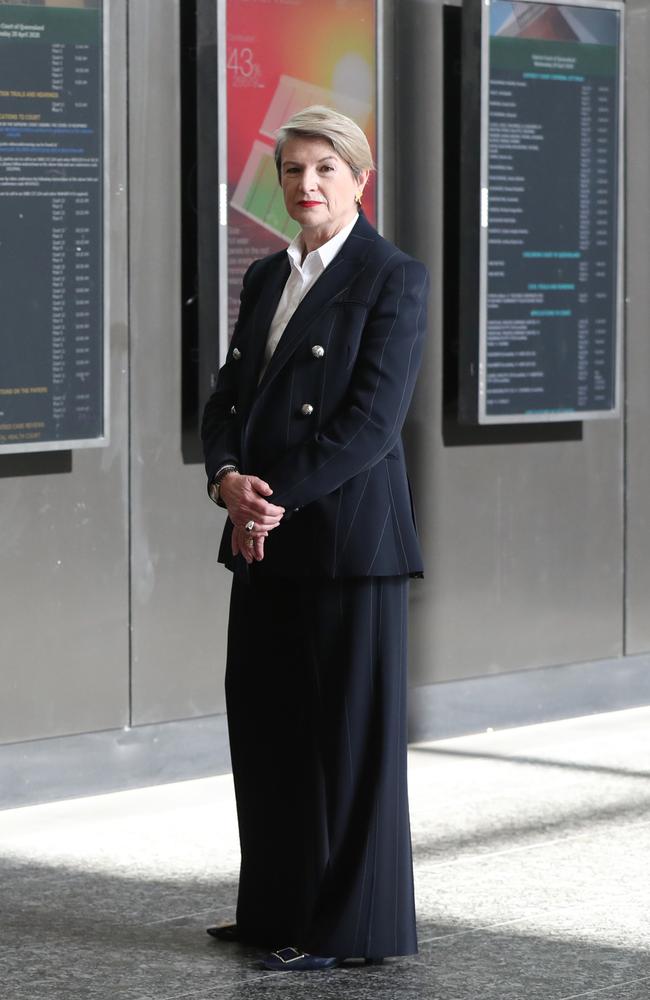A Queensland judge has made an urgent and important precedent-setting decision for a child who wants to stop developing as a boy and live life as a girl.
The Courier-Mail
The child, “A”, has been living as a girl for several years and is terrified of her voice deepening and her male genitalia getting bigger, the judge was told.
The mother applied for an urgent order for her to be able to consent to stage one male puberty blocking treatment for her child, without the father’s consent.
“From the age of four, A would declare that she was something other than her male gender and began to declare she was a girl and not a boy and had been born in the wrong body,’’ Justice Ann Lyons said.
“She is uncomfortable wearing boys’ clothes and prefers girls’ clothes, preferably in the colour pink.’’
The mother and child have not seen the father for more than three years, with the mother claiming he had a criminal history for drug and weapons offences and was violent.
She and the child moved to regional Queensland to escape the father, whom she claimed was emotionally, verbally and physically abusive towards both of them.
He did not support the child’s desire to be female, the court heard.
The Supreme Court heard the mother did not know the father’s whereabouts and there were concerns that if the application was made in the Family Court there could be long delays.
The girl is being home schooled, but while she attended a supportive State school she had worn a female uniform and chosen a female name on the school roll and on her bus pass.
A treating team recommended A receive reversible treatment that would block her puberty as a male.
The child, who has autism spectrum disorder, had a history of self-mutilation because of her distress about her genitalia and had previously had suicidal thoughts, a psychiatrist said.
The child recently became upset when experiencing erections.
The doctor said he was concerned if she did not get treatment the child would be at significant risk of depression, anxiety, social isolation, suicide or self-harming of her genitalia.

Justice Ann Lyons. Picture: Peter Wallis
Justice Lyons heard the application on December 18, two days before the child turned 13.
The judge said the application was brought in the “parens patriae’’ jurisdiction, in which the court acted as a parent to protect children who are unable to look after their own interests.
It allowed the court to make orders contrary to the wishes of a child’s parent, if satisfied it was in the best interests of the child.
Justice Lyons said she was satisfied that A had gender dysphoria, that she and her mother consented to the puberty blocking treatment and the treating team considered it was in the child’s best interest that it not be delayed.
She said considerably delaying treatment to obtain the father’s consent was not in the child’s best interest.
Justice Lyons allowed the mother to consent to the puberty blocking drug treatment without the father’s consent, because of the time of year and concerns about delay.
However, the judge said any future applications for stage two treatment should go before the Family Court of Australia, given its expertise in such matters.
Australian Transgender Support Association of Queensland president Gina Mather applauded the decision of Supreme Court Justice Lyons, which she said was for the betterment of the child.
“We understand the heartache and desperation of trying to contact an absent parent regarding medical assistance for a child,” Ms Mather said.
“The Supreme Court judge should be commended for acting quickly to make this urgently-needed decision,.
“Family law is too slow regarding children under the age of 16 whose parents are of differing opinions with regards to gender dysphoria and puberty blockers.
“This medication is reversible and allows breathing space for everyone, the child, the parents and so on.’’


